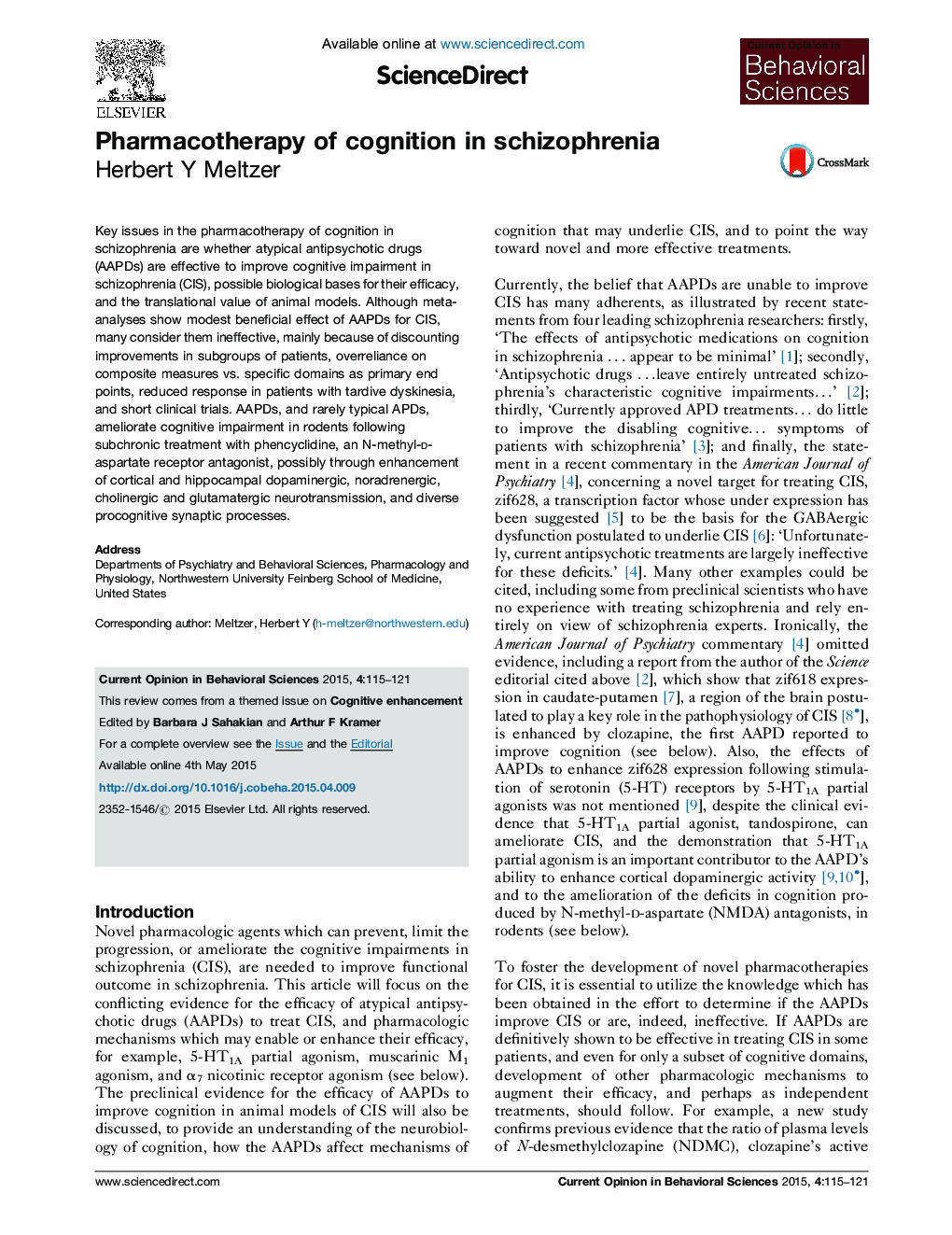| Article ID | Journal | Published Year | Pages | File Type |
|---|---|---|---|---|
| 6260698 | Current Opinion in Behavioral Sciences | 2015 | 7 Pages |
â¢Atypical antipsychotic drugs (AAPDs) improve some domains of cognition in schizophrenia (CIS).â¢The AAPD-induced improvement in CIS exceeds practice effect levels.â¢Tardive dyskinesia has obscured the efficacy of AAPDs to improve CIS.â¢AAPDs, but typical APDs, restore cognitive function in subchronic phencyclidine-treated rodents.â¢Stimulation of D1, α7 nicotinic, and muscarinic M1 receptors are key targets for improving CIS.
Key issues in the pharmacotherapy of cognition in schizophrenia are whether atypical antipsychotic drugs (AAPDs) are effective to improve cognitive impairment in schizophrenia (CIS), possible biological bases for their efficacy, and the translational value of animal models. Although meta-analyses show modest beneficial effect of AAPDs for CIS, many consider them ineffective, mainly because of discounting improvements in subgroups of patients, overreliance on composite measures vs. specific domains as primary end points, reduced response in patients with tardive dyskinesia, and short clinical trials. AAPDs, and rarely typical APDs, ameliorate cognitive impairment in rodents following subchronic treatment with phencyclidine, an N-methyl-d-aspartate receptor antagonist, possibly through enhancement of cortical and hippocampal dopaminergic, noradrenergic, cholinergic and glutamatergic neurotransmission, and diverse procognitive synaptic processes.
